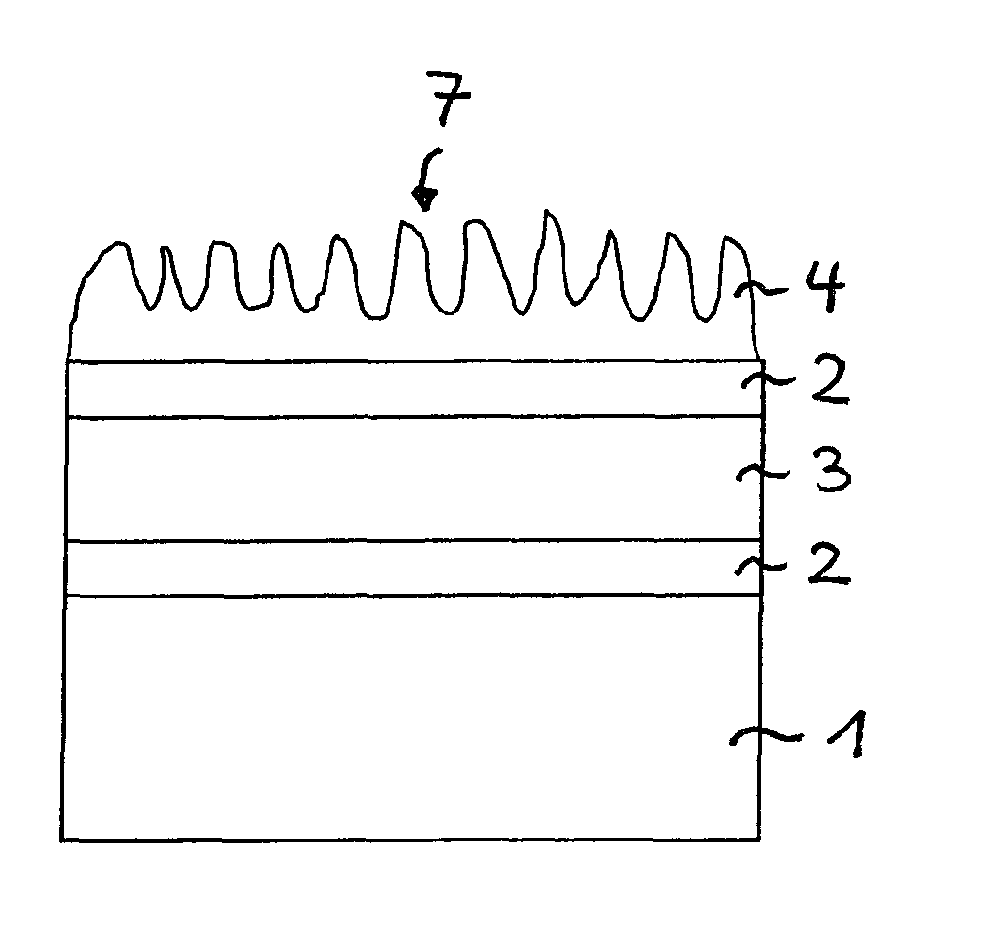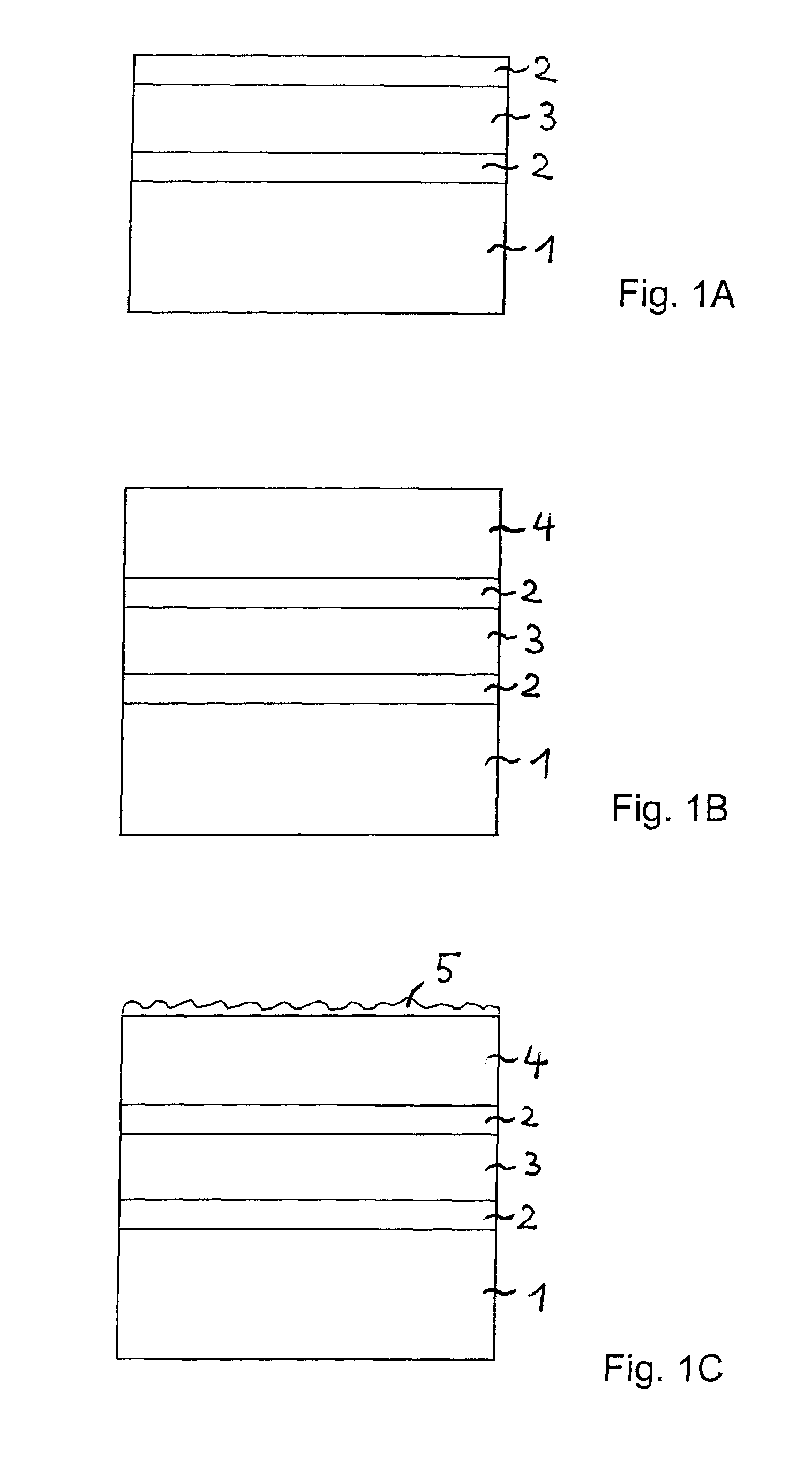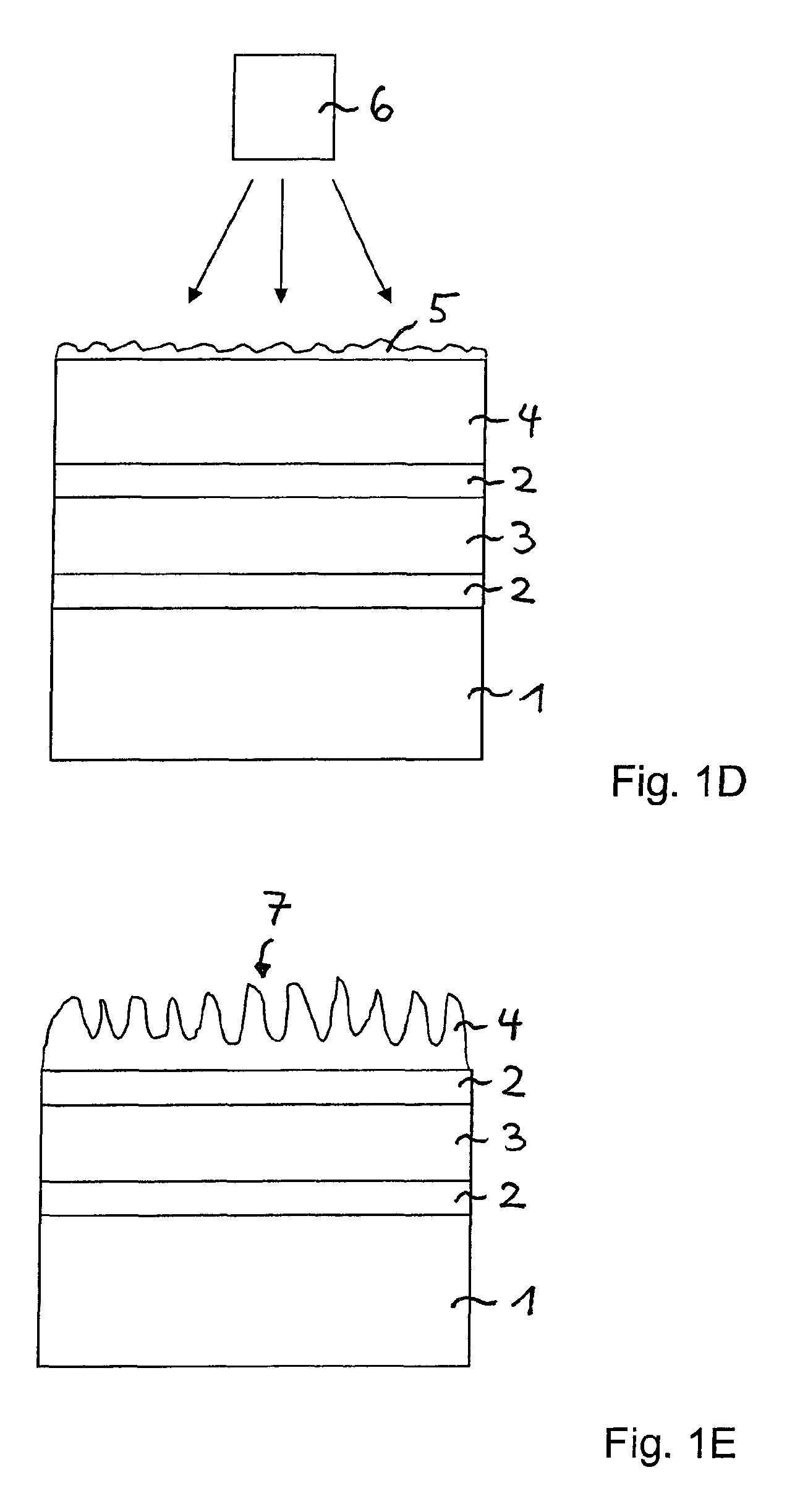Reflection-reducing interference layer system and method for producing it
a layer system and interference layer technology, applied in the field of reflection-reducing interference layer system, can solve the problem of not being able to readily employ harder materials
- Summary
- Abstract
- Description
- Claims
- Application Information
AI Technical Summary
Benefits of technology
Problems solved by technology
Method used
Image
Examples
Embodiment Construction
[0040]Identical or identically acting constituent parts are in each case provided with the same reference symbols in the figures. The illustrated constituent parts and also the size relationships of the constituent parts among one another should not be regarded as true to scale.
[0041]In the first intermediate step of a method for producing a reflection-reducing interference layer system, as illustrated in FIG. 1A, a plurality of layers 2, 3 having different refractive indices have been applied to a substrate 1. The substrate 1 can be, in particular, an optical element whose surface is intended to be antireflection-coated by the application of a reflection-reducing interference layer system. By way of example, the substrate 1 can be a lens such as, for example, a spectacle lens or the surface of a display.
[0042]The substrate 1 can be, in particular, a substrate composed of glass or quartz, but it can also be formed from a plastic. The substrate 1 can have a refractive index of n=1.5,...
PUM
| Property | Measurement | Unit |
|---|---|---|
| thickness | aaaaa | aaaaa |
| thickness | aaaaa | aaaaa |
| thickness | aaaaa | aaaaa |
Abstract
Description
Claims
Application Information
 Login to View More
Login to View More - R&D
- Intellectual Property
- Life Sciences
- Materials
- Tech Scout
- Unparalleled Data Quality
- Higher Quality Content
- 60% Fewer Hallucinations
Browse by: Latest US Patents, China's latest patents, Technical Efficacy Thesaurus, Application Domain, Technology Topic, Popular Technical Reports.
© 2025 PatSnap. All rights reserved.Legal|Privacy policy|Modern Slavery Act Transparency Statement|Sitemap|About US| Contact US: help@patsnap.com



